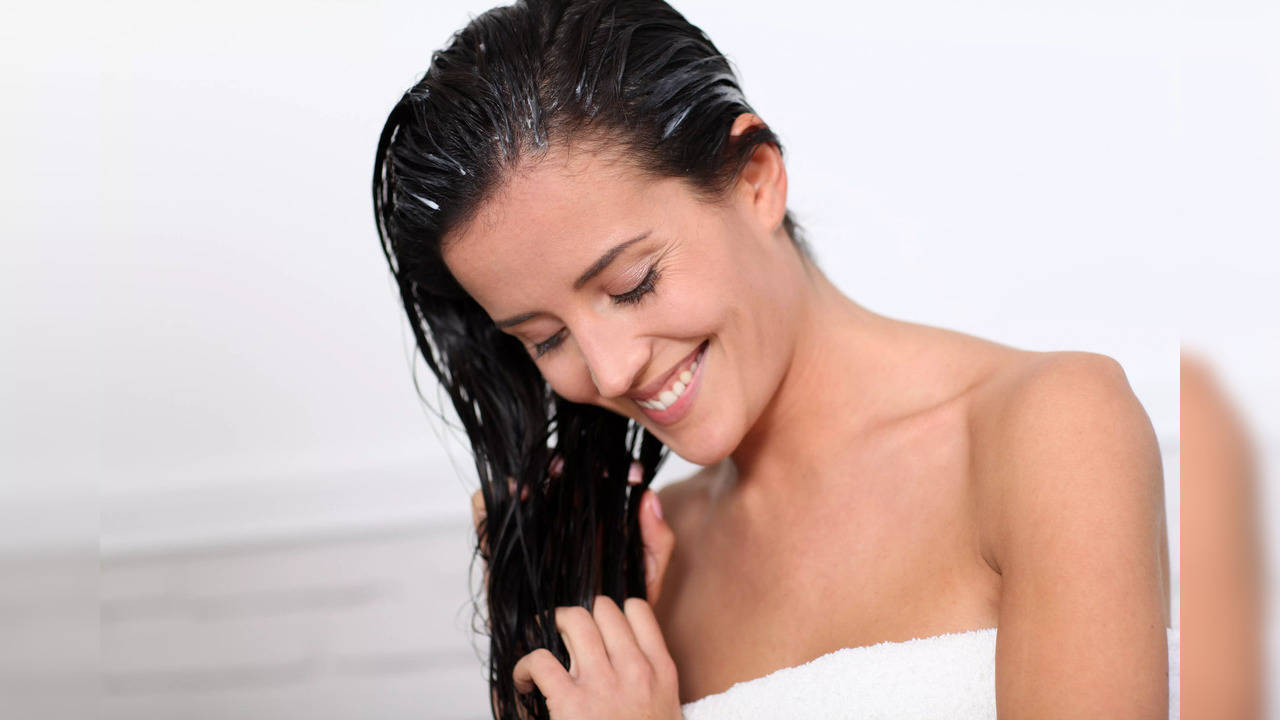Here’s why you should switch to sulphate-free shampoo

Why you should switch to sulphate-free shampoo
New Delhi: Those battling issues like rosacea, dermatitis, eczema or even itchiness in the scalp would understand the perils of using a shampoo with sulphates. The chemical makes the hair dry and brittle resulting in massive hair loss, something no one wants to experience.
And with age, the condition worsens as menopause in women, reduction of melanin and thin follicles add up all hair problems. The best way to deal with this is using sulphate-free shampoo which moisturises, conditions and helps reduce breakage, split ends, and frizz.
Experts believe sulphates are added to shampoos because they are detergents and foaming agents and provide good lather while using.
Here’s looking at the benefit a sulphate-free shampoo provides:
- Balances oil – Our scalp needs a balance of natural oils for it to be healthy, as a fit scalp would mean shiny hair. The sulphate-free shampoo helps get rid of two extremes – dryness and excessive oil production, both of which harm in the long run.
- Soft, frizz-free hair – If the hair is not subjected to chemicals like sulphate, they appear to be more silky, shiny, and bouncy.
- Safe for colour treatments – Experts believe that sulphate-free hair is more resilient to treatments like hair colouring, etc.
- Suitable for all hair types – Sulphate-free shampoos can be used irrespective of hair types as they provide natural nourishment.
- Easy on the eyes – Sulphate-free shampoos are gentle on the eyes. If it accidentally gets in the eyes, the shampoo doesn’t cause the same burning experience sulphate full shampoo does.
How to check if your shampoo is sulphate free?
Sulphates can be identified in many different forms and their names can be complicated. It makes knowing what to look for on the label perplexing. Here is a list of commonly used sulphate ingredients to help make identification easier:
- Sodium Lauryl Sulfate and Sodium Laureth Sulfate (SLS and SLES)
- Phthalates
- Triethanolamine (TEA)
- Sodium Myreth Sulphate (SMS)
- Ammonia Laureth Sulphate (ALS)
- Parabens
Disclaimer: Tips and suggestions mentioned in the article are for general information purposes only and should not be construed as professional medical advice. Always consult your doctor or a dietician before starting any fitness programme or making any changes to your diet.
Trending:

61-Year-Old US Man Claims Body Of A 38-Year-Old, Reveals Biohacking Journey

What Is Geriatric Pregnancy? Experts Share Unique Challenges And Risks

Optical Illusion Personality Test: What You See First Can Reveal What You Desire The Most

Wrapping Food In Aluminium Foil Is Dangerous; Know How

10 Health Benefits Of Cutting Carbohydrates From Your Diet









